
Opinions
18:56, 08-Jun-2018
Iran in SCO: Looking inward to solve region’s greatest challenges
By Ghanbar Naderi
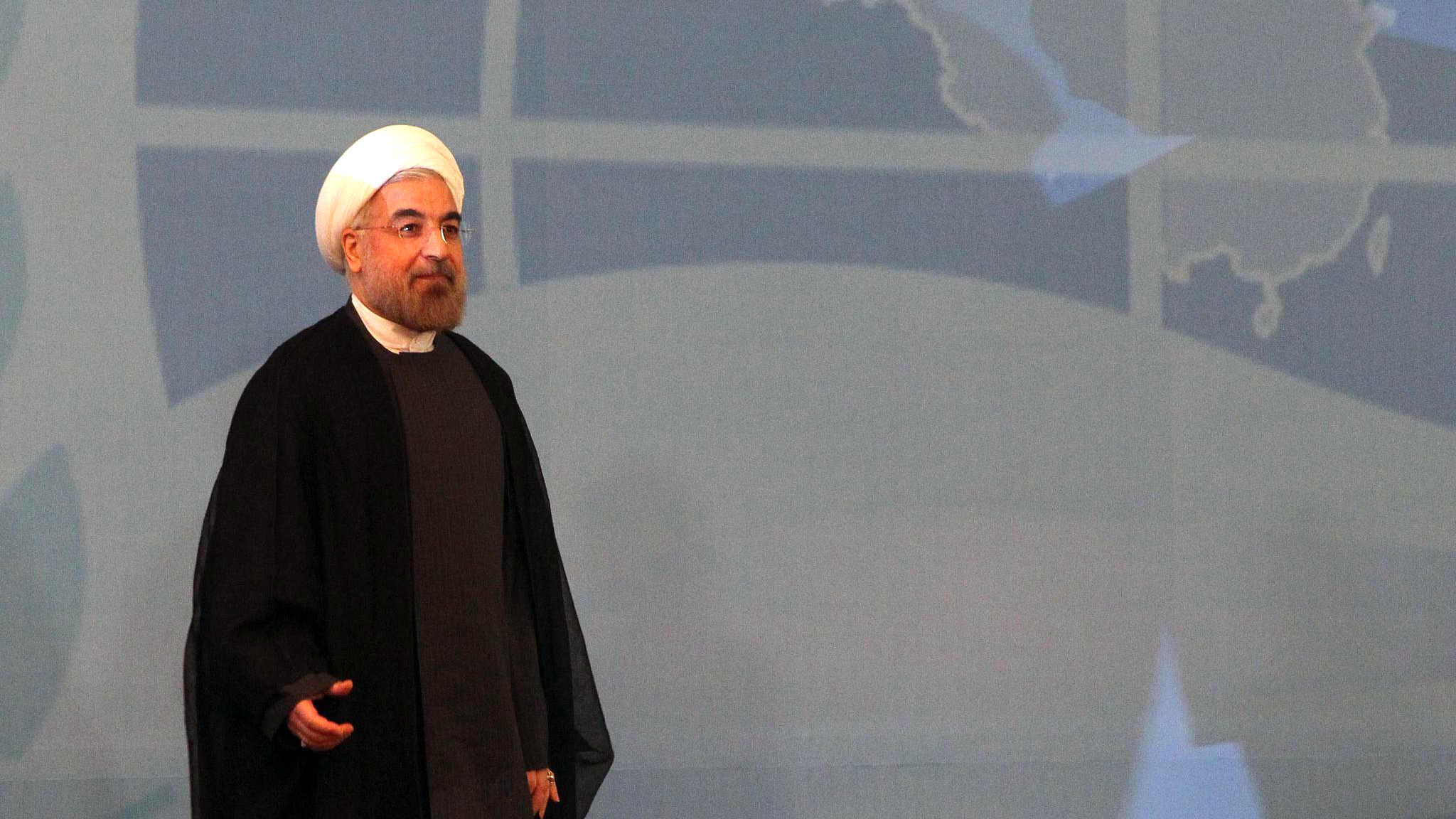
Editor's note: Ghanbar Naderi is an Iranian columnist. The article reflects the author's opinion, and not necessarily the views of CGTN.
Iranian President Hassan Rouhani is taking part in the Shanghai Cooperation Organization (SCO) summit in Qingdao, which is presided over by Chinese President Xi Jinping, in a bid to create and communicate Tehran’s absolute clarity of purpose in joining the regional organization.
The SCO is currently composed of China, Russia, Kazakhstan, Kyrgyzstan, Tajikistan, Uzbekistan, India and Pakistan. Iran, Belarus, Mongolia and Afghanistan hold observer status, while Azerbaijan, Cambodia, Armenia, Nepal, Turkey and Sri Lanka hold the status of dialogue partners. In its present condition, time is ripe for the SCO to boost sustainable generosity, social capital and prosperity in the region. Within this constellation, Iran should be of some help.
Back to SCO?
Iran wants to show the advantage of its geopolitical and geostrategic importance to the world, but it cannot do this without the SCO. Iran has been knocking at the SCO’s door for a long time and there have always been hurdles over the anti-Iran sanctions by the US and a number of preconditions put forward by other member states. China and Russia support Iran’s membership, but there are other members and there is a need for a collective decision on the issue.
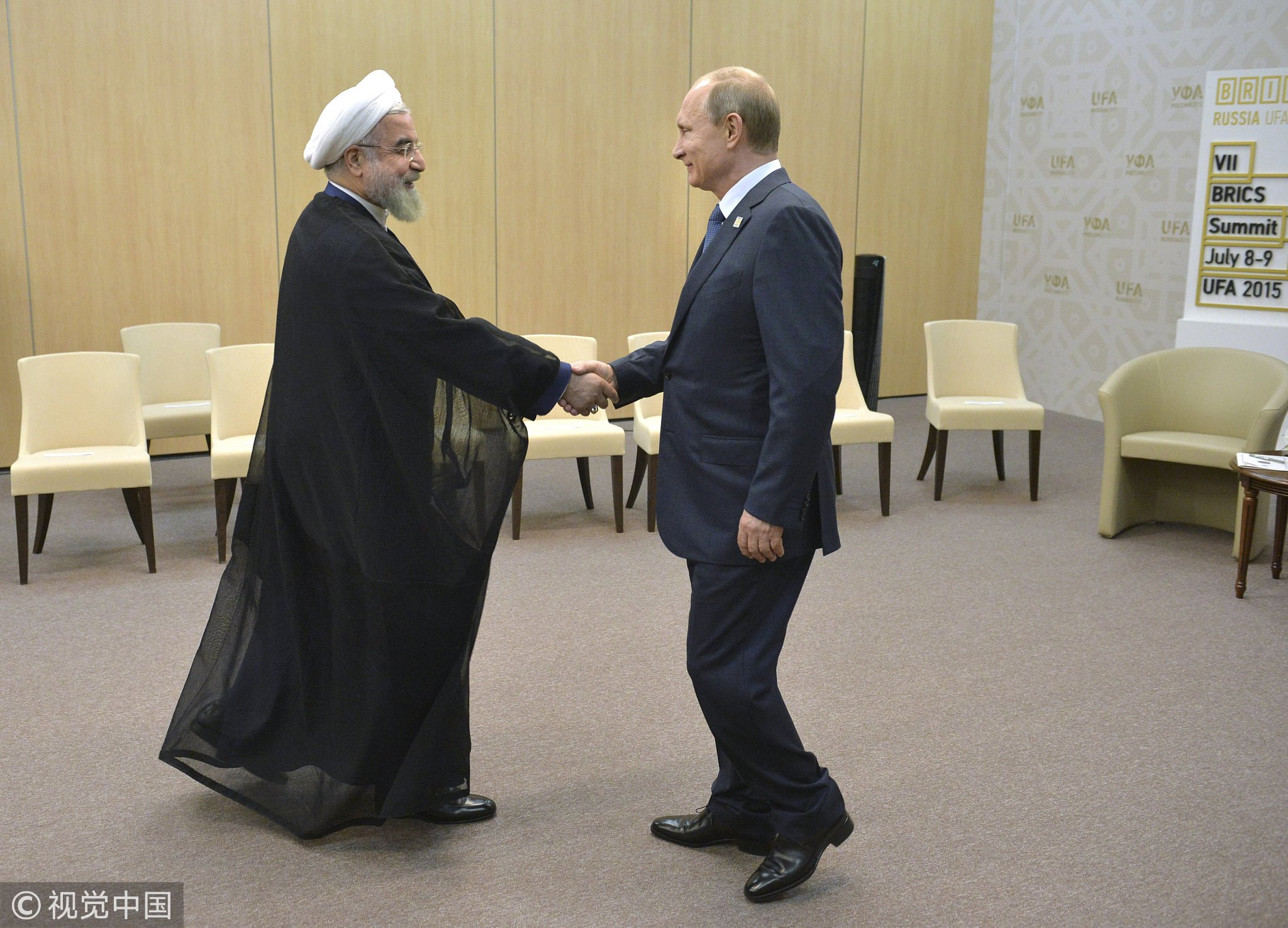
Russian President Vladimir Putin (R) shakes hands with Iran's President Hassan Rouhani during their meeting in Ufa, Russia, July 9, 2015. /VCG Photo
Russian President Vladimir Putin (R) shakes hands with Iran's President Hassan Rouhani during their meeting in Ufa, Russia, July 9, 2015. /VCG Photo
President Rouhani is attending the Qingdao summit because Iran had certain hopes for him and wanted him to connect the country with the so-called Western globalization process after signing the nuclear deal in 2015. It was wishful thinking though. The United States voided the deal and now Iran sees that the West is a closed system which does not accept new members - neither on its merits, nor the size of its assets, nor on any other ground. Iran, therefore, is turning back to the SCO, as well as to other organizations in Eurasia.
We’re all in this together
Iran has always wanted to be a full member of the SCO.
Its membership will open up large opportunities for the country, for the transport logistics of the New Silk Road project, as well as other transport routes, such as the North-South Transport Corridor from Russia into India and further into Europe.
It will provide new opportunities for security as well. There are still threats which are common to all members, such as terrorism. By uniting efforts with Iran, the member states could stop this threat from the Middle East.
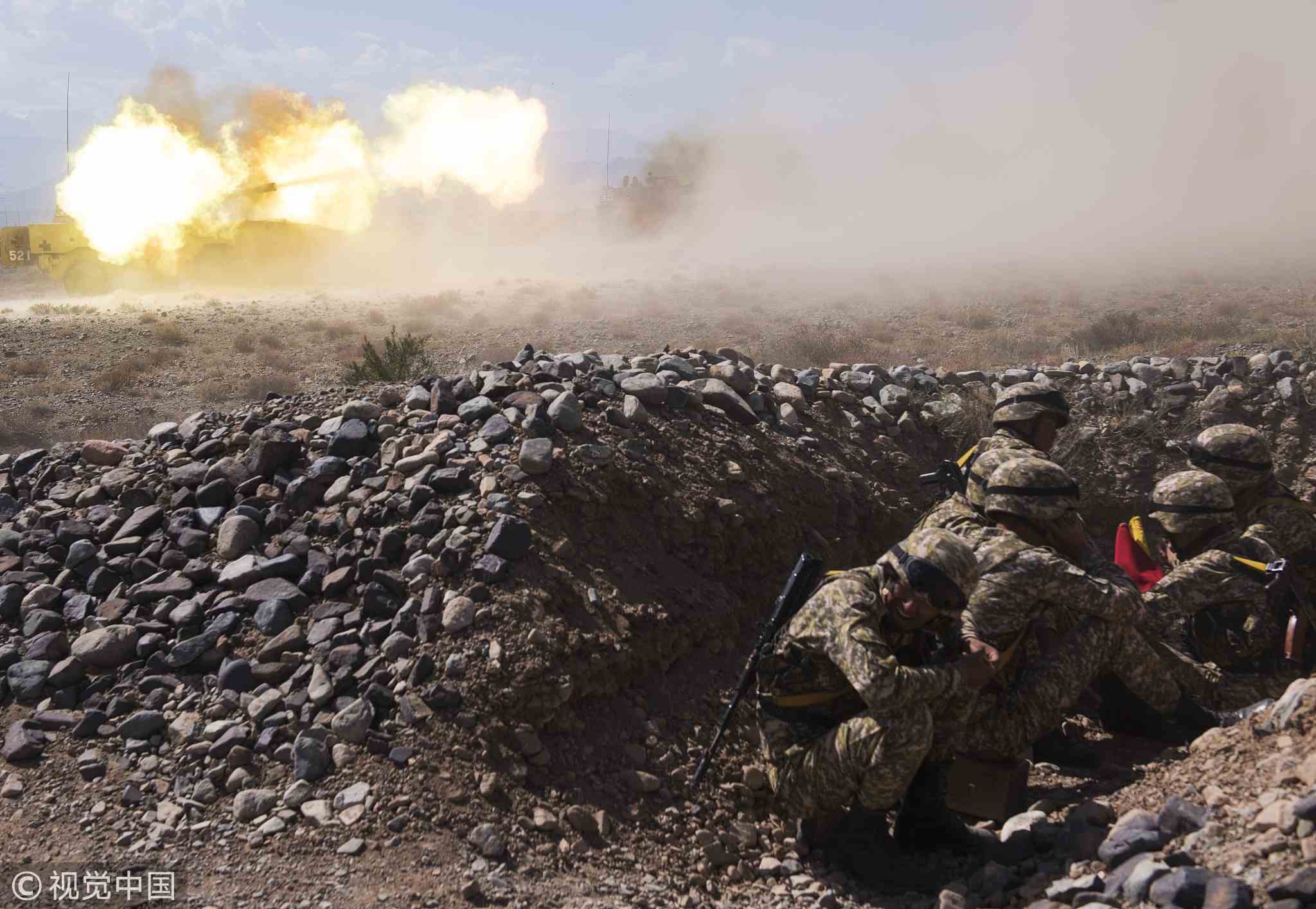
Servicemen involved in the Peaceful Mission 2016 anti-terrorism exercises by the Shanghai Cooperation Organization in Kyrgystan, September 19, 2016.
Servicemen involved in the Peaceful Mission 2016 anti-terrorism exercises by the Shanghai Cooperation Organization in Kyrgystan, September 19, 2016.
In addition, despite Washington’s withdrawal, Tehran still needs to continue to implement the Joint Comprehensive Plan of Action (JCPOA) if it wants to become a full member of the SCO. The European Union also says it will save the deal for security reasons.
If the JCPOA is further implemented, the normal economic cooperation between the relevant countries will not be affected. Further still, Iran and China need to avoid major disruption to the trade and economic cooperation projects between the two sides.
Spillover effect
The SCO is the most populous regional organization, with three billion people, accounting for 17.5 percent of the world’s proven oil reserves, some 50 percent of known natural gas reserves, and about 14 trillion US dollars in GDP. Iran’s membership could bring the SCO to the Persian Gulf and even encourage the Arab littoral states to join.
SCO members throughout the region have shared transnational security concerns, described in the Chinese shorthand of the “three evils”: terrorism, extremism, and separatism.
The downside is that Iran’s unilateral action as a member could invite reprisals against SCO member states by the forces Iran is engaged against, linking their grievances to the larger organization.
On the face of it, the SCO can no longer remain a Central Asian security forum. Admitting Iran, which is now under new unilateral sanctions imposed by the US, appears counter-intuitive. But admitting Iran as a full member is still an opportunity to provide a platform to settle regional and trans-regional disputes.
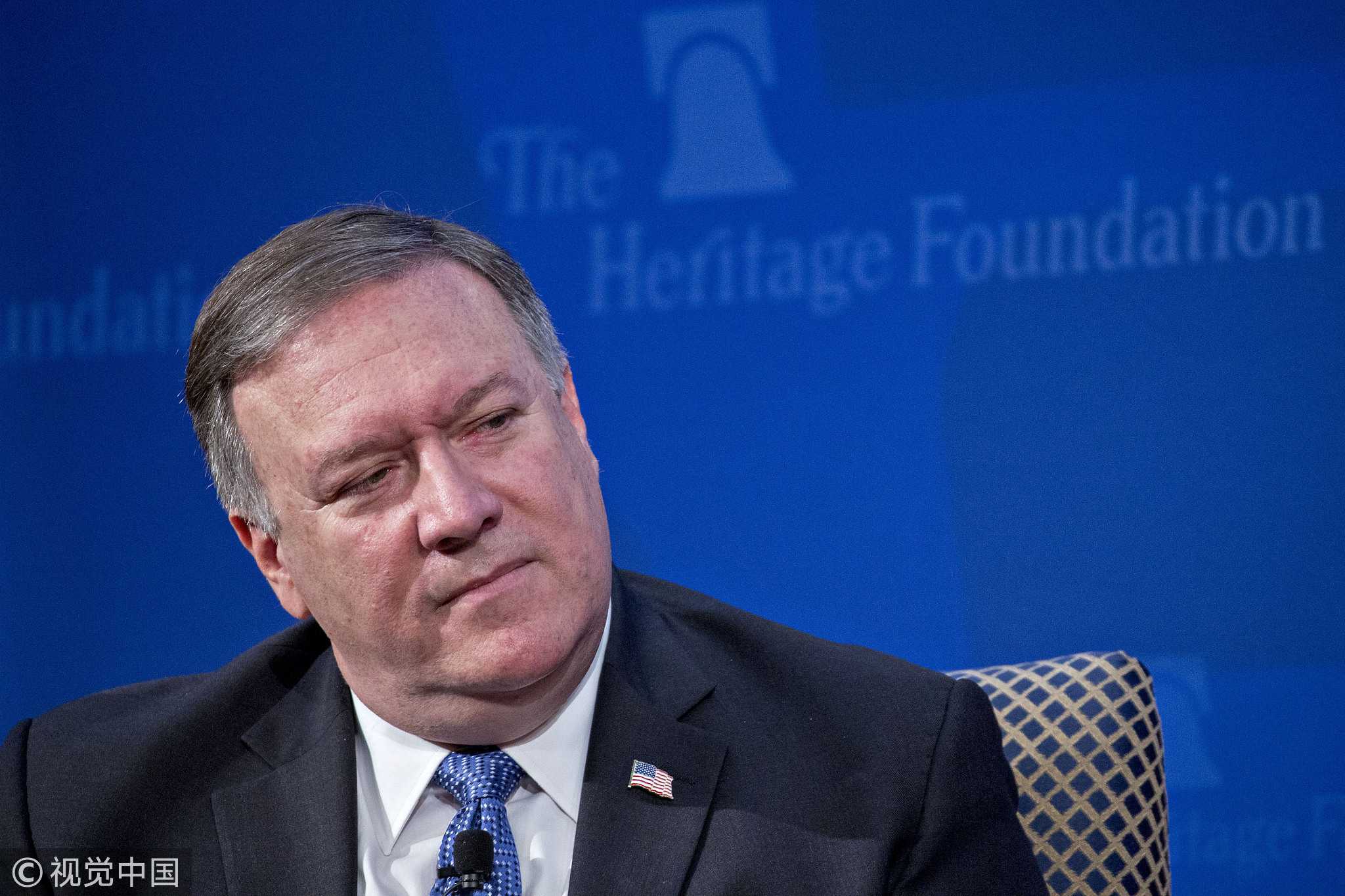
Mike Pompeo, US secretary of state, listens during a discussion at the Heritage Foundation in Washington, D.C., U.S., on Monday, May 21, 2018. /VCG Photo
Mike Pompeo, US secretary of state, listens during a discussion at the Heritage Foundation in Washington, D.C., U.S., on Monday, May 21, 2018. /VCG Photo
Every advantage is temporary
Energy giant Iran is no longer under United Nations sanctions, and according to the International Atomic energy Organization, it is fully implementing the JCPOA. Even Washington’s unilateral sanctions regime cannot go on forever because Trump’s decision on Iran is not as black and white as it seems. The results are temporary and this can and should open the possibility of Iran joining the SCO.
Russian President Vladimir Putin has stated, “We believe that after Iran’s nuclear problem was solved and the United Nations sanctions lifted, there have been no obstacles left.” China has also said “Beijing welcomes and supports Iran’s wish to become a formal member of the SCO.”
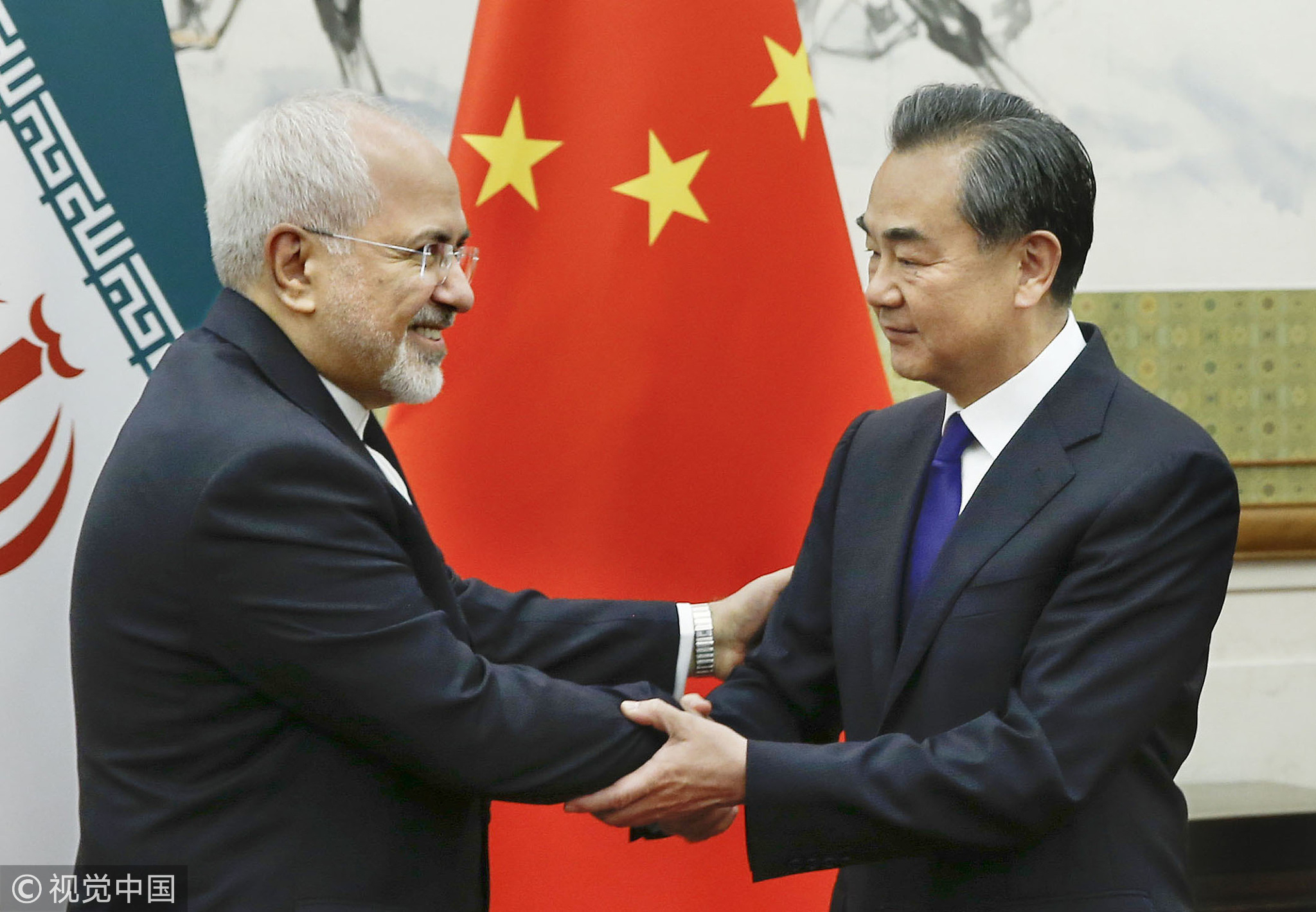
Chinese State Councilor and Foreign Minister Wang Yi (R) shakes hands with Iranian Foreign Minister Javad Zarif at the Diaoyutai State Guesthouse in Beijing on May 13, 2018. /VCG Photo
Chinese State Councilor and Foreign Minister Wang Yi (R) shakes hands with Iranian Foreign Minister Javad Zarif at the Diaoyutai State Guesthouse in Beijing on May 13, 2018. /VCG Photo
If so, Iran would provide some excellent advantages for the organization. The pros include potential SCO maritime access to the volatile Middle East should they ever need it, and combat experienced forces for the regional anti-terrorism structure (RATS) mechanism as well as for the “Peace Mission” exercises.
For a true regional organization
The significance of Iran’s contribution toward SCO’s economic region goes up naturally with the inclusion of India and Pakistan in the group that has already been taken care of.
Now that the remaining parties to the JCPOA have said they are determined to save the international agreement, Iran is better positioned to experience a steady rise, both politically and economically. If so, this momentum should be shared regionally and on the SCO’s sphere and basis.
All in all, Iran's SCO membership is beneficial to all sides.
The SCO will be able to settle Afghanistan's issues and develop strategic transport corridors throughout Eurasia. Iran's accession will contribute to the development of these transport corridors, present considerable economic benefits, offer numerous investment opportunities to the SCO members, and help Iran add to its geopolitical and geostrategic importance.
For one thing, Iran will raise its rating as a regional player. Its accession is an unsettled matter, but there is no doubt it will be a positive act.

SITEMAP
Copyright © 2018 CGTN. Beijing ICP prepared NO.16065310-3
Copyright © 2018 CGTN. Beijing ICP prepared NO.16065310-3